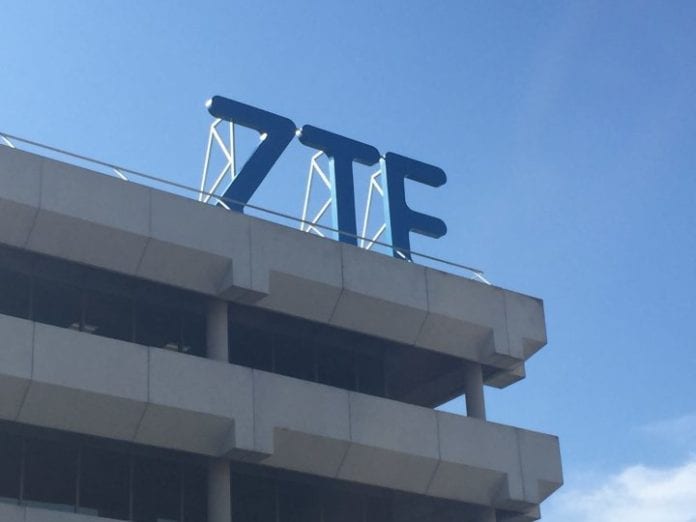Under the new deal, ZTE would pay a combined fine of nearly $1.7 billion
Chinese vendor ZTE has signed an agreement that would lift a U.S. Commerce Department ban on buying from U.S. suppliers, Reuters reported, citing sources with knowledge of the matter.
However, a Commerce Department spokesperson said that a definitive deal to lift the sanctions had not been signed by both parties.
The potential agreement with the U.S government would allow the Chinese company to resume business after the Commerce Department’s Bureau of Industry and Security (BIS) banned American firms from selling telecommunications equipment and services to ZTE during a seven-year period after the vendor allegedly did not live up to the terms of an agreement that had been worked out after it illegally shipped telecom equipment to Iran and North Korea.
In early May, ZTE said it had ceased its major operating activities due to the export ban imposed by the U.S. government.
According to the report, the preliminary agreement stipulates a fine of $1 billion against ZTE plus $400 million in escrow to cover any future violations. The Commerce Department also plans to amend its 2017 settlement agreement and count the $361 million ZTE paid at that time as a part of the new agreement, according to the report.
In March 2017, ZTE agreed to a combined civil and criminal penalty and forfeiture of $1.19 billion after illegally shipping telecommunications equipment to Iran and North Korea, making false statements, and obstructing justice including through preventing disclosure to and affirmatively misleading the U.S. Government, the Department of Commerce said. Part of the deal was that ZTE would reprimand and deny bonuses to the employees who had acted illegally, but the Department of Commerce says that instead, ZTE paid full bonuses to employees that had engaged in illegal conduct and failed to issue letters of reprimand.
ZTE has recently sent out reprimand letters to 35 current and former employees involved in illegal sales to Iran and is seeking to claw back bonuses from those executives who have left the firm, according to a report by the South China Morning Post.
As part of the new agreement, U.S. authorities are also negotiating unrestricted site visits to the vendor’s facilities in China to verify the use of U.S. components. ZTE may also need to provide information about the amount of U.S. components being used in its smartphones and telecom equipment on a website.
Additionally, ZTE would have to replace its board and management team within the next 30 days as part of a potential deal. American firms provide approximately 25-30% of components in ZTE’s products. Some of the key U.S. suppliers are Qualcomm, Dolby, Intel, Google and Acacia Communications.
U.S President Donald Trump had previously instructed the Department of Commerce to find a solution to this conflict. ZTE is estimating losses of at least CNY 20 billion ($3.1 billion) as a consequence of the ban, Bloomberg previously reported. ZTE is spending an estimated CNY 80 million to 100 million in daily operational expenses.
On April 17, the Chinese company was forced to halt trading of its shares in Hong Kong and Shenzhen following the decision by U.S. authorities.
U.S. Sen. Mark R. Warner (D-VA), vice chairman of the Senate Select Committee on Intelligence and a member of the Senate Banking Committee, released a statement reacting to the news reports of the potential agreement to lift the ban.
“If these reports are accurate, this is a huge mistake,” Warner said. “ZTE poses a threat to our national security. That’s not just my opinion – it’s the unanimous conclusion of our intelligence community.”

